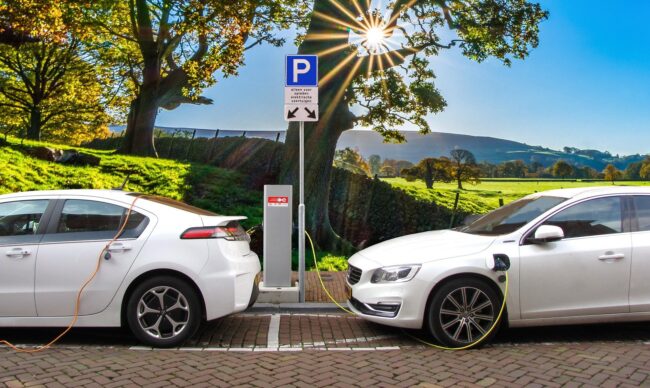When considering whether electric cars are safe in an accident, we compare them with the known benchmark of fuel-driven vehicles. Indeed, the cars are subject to the same stringent tests irrespective of type.
Global concerns with damage to our environment have seen a rapid shift in the attitude of major car manufacturers toward “green” vehicles, and it is looking highly likely that fuel-driven vehicles face an uncertain, if not doomed, future.
After its 2021 annual meeting, the conspiracy-ridden World Economic Forum published, “In 2021, the network will focus on placing European city actors on path to achieve a 50% and 100% urban fleet electrification by 2025 and 2030, respectively.”
A new analysis by Climate Action Tracker has found that the US should ensure almost all new cars and light vehicles sold are electric by the end of this decade. Further, the US should stop using fossil fuels for power generation by 2035 to cut greenhouse gas emissions in line with the Paris agreement.
So it looks like the world is changing fast and, in all likelihood, we will soon all be driving electric cars.
Let’s take a look at the safety elements of electric vehicles.
Are Electric Vehicles Subject to Crash Tests?
All vehicles are subject to crash tests before being released to consumers.
These are official tests, and manufacturers conduct their own accidents tests internally before submitting their vehicles to official crash testing.
Are EVs Safer In An Accident Than Fuel Propelled Vehicles?
It is a generalization to state that all EVs are safer or not safer than fuel propelled cars. It depends on the particular EV that is tested.
Since all cars are tested using the same techniques, it is possible to compare them.
Some EVs find themselves at the top of the safety standards.
For example, Ford Mustang Mach-E, an all-electric SUV, earned an IIHS “Top Safety Pick” award.
Volvo’s XC40 Recharge, the car company’s first fully electric vehicle, the Audi e-Tron and the Tesla Model 3 earned the highest honors of “Top Safety Pick+.”
Generally, electric cars are heavier than their fuel propelled counterparts. This has an advantage in an accident situation. Research has shown that occupants in heavier vehicles experience less force in a crash, leading to fewer injuries.
Electric cars perform better in real-world settings, with human drivers and passengers aboard. Injury claims for electric vehicles were 40% lower than accidents involving identical gas-powered models. It’s best to speak to a car accident lawyer if you have any further questions regarding injury claims for electric vehicles, especially when it comes to possible electric car battery recalls.
Is It True That EV Batteries Are Likely To Explode In An Accident?
Electric vehicles run on flammable lithium-ion batteries. However, the likelihood of a battery igniting is incredibly minimal.
Millions of battery-fuelled products (including computers and phones) are on the market, but fires are few and far between.
Li-ion batteries pose less of a risk of fire or explosions than gasoline.
Final Conclusion
On average, EVs are safer than fuel propelled vehicles in an accident.
Prior hysteria about lithium-ion batteries exploding in accidents has been dispelled.
EVs are subject to stringent testing.
It is a good idea to review the safety rating of any car you buy. EVs should be no exception.
Photo Credit
Photo is from pixabay
Guest Author Bio
Stephen Jacobson
Stephen Jacobson is a freelance writer for ModestMoney.com. In addition to writing about finance he also covers a wide variety of other topics.
Recent Guest Author Articles:
- Why Speed and Reliability Matter for Business Connectivity
- How Does Ultrasound Therapy Enhance Skin Firmness Without Surgery?
- From License to Lifestyle - How State Choice Impacts Nursing Journeys
- Your Online Reputation Is Everything (Here's How to Build It Fast)
- 5 Spiritual Resources to Help Humanity in Times of Crisis



Please Share Your Thoughts - Leave A Comment!